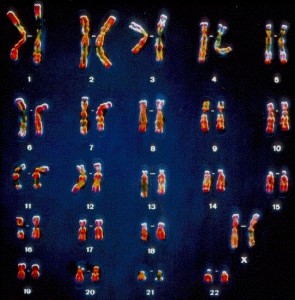 When two parents are expecting a child, nerves are high and a lot is at stake. Parents want their children to be born perfectly healthy, but there really isn’t much that they can do to sway the course of probability and genetics. When an egg is fertilized by a sperm cell, the gender along with all traits are determined. Most times a baby is born perfectly healthy, but there is always the chance that a baby could inherit a genetic disease.
When two parents are expecting a child, nerves are high and a lot is at stake. Parents want their children to be born perfectly healthy, but there really isn’t much that they can do to sway the course of probability and genetics. When an egg is fertilized by a sperm cell, the gender along with all traits are determined. Most times a baby is born perfectly healthy, but there is always the chance that a baby could inherit a genetic disease.
Before making the decision to have a child, parents do have a few options to help ensure that their baby will be born healthy, or if there is a significant risk for passing down a genetic disease, taking preventative measures to help ensure the health of the baby. Parents can first meet with a genetic counselor and discuss the probability of passing a genetic disease down to their child. A sample of cheek cells can be taken and DNA can be extracted to construct a karyotype. A karyotype is like a map of an individual’s chromosomes and provides a visual representation of them. The genetic counselor is able to analyze this karyotype and identify any abnormalities that may put the child’s health at risk. For example, a genetic counselor can see if a baby has an abnormal number of chromosomes. Instead of having a homologous pair of chromosomes, a baby may have three chromosomes or only one chromosome where two chromosomes should be present.
If there is a great risk of passing a genetic disease down to their child, parents are not completely out of options. The egg cells can be extracted from the mother and fertilized through invetro-fertilization. Embryos are grown in a controlled environment where they can be monitored for the development of a genetic disease. If there are any healthy embryos remaining at the end of this process, they can be surgically placed back into the mother.
An alternative form of testing is having an amniocentesis. During an amniocentesis, about one ounce of amniotic fluid is removed from the sac surrounding the fetus. This fluid contains live fetal cells and is sent to a lab for in-depth genetic analysis.
Seeking a genetic counselor,  analyzing karyotypes, having an amniocentesis, and undergoing invetro-fertilization are all modern tools that are used to help prevent the passing down of genetic diseases to offspring. Through these tests, parents can have a reassurance that their baby will most likely be healthy despite what the odds of genetics may predict.